Kirby Larson's Blog, page 37
March 1, 2013
Friend Friday
If you want to write middle grade novels, then study the work of Linda Urban. She can create character with fewer words than any other writer I know. And the characters she creates are the kind I simply fall in love with, because they are messy and flawed and stumbling along, just like me.
So, in four short days, you must run to your local independent bookstore or local library and get your hands on
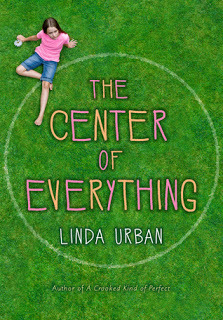 You. Will. Love. This. Book.
You. Will. Love. This. Book.
I promise.
So, in four short days, you must run to your local independent bookstore or local library and get your hands on
 You. Will. Love. This. Book.
You. Will. Love. This. Book.I promise.
Published on March 01, 2013 07:00
February 28, 2013
Thursday's Thought
"Pretty is as pretty does."
one of my mom's favorite sayings
one of my mom's favorite sayings
Published on February 28, 2013 07:00
February 26, 2013
Teacher Tuesday
Holy Tech, I'm being challenged once again to join the 21st century! This latest challenge comes from Kevin Hodgson, sixth grade teacher at William E. Norris Elementary School, in Southhampton, Massachusetts. Kevin teaches four classes of sixth graders, and his school combines reading and writing with technology (when applicable and when possible). Find Kevin online, at his blog, Kevin’s Meandering Mind, and his classroom blog, The Electronic Pencil, where he and his students share what they're up to. Find him on Twitter: @dogtrax. (Kevin refuses to use Facebook because of issues of privacy piracy). He is also the technology liaison with the Western Massachusetts Writing Project.
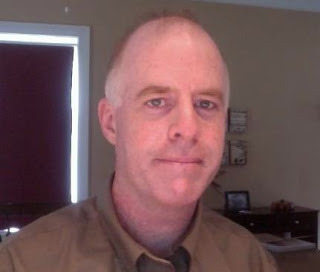
Let's take a peek at Kevin's past:Favorite school lunch as a kid: Imay have been alone in my school in remembering the ravioli as something to be looked forward to on every third Wednesday of the month.Best friend in grade school: John “Murph” Murphy, a neighbor and fellow musician.Times you were the new kid in school: I joined the lacrosse team my senior year in high school (after sitting out sports for years because I was in every band there was at our school). Most of the kids were soccer kids. Not me.Teacher who inspired you to stretch: My own sixth grade teacher, Mr. Dudak. I remember him as being slightly unhinged (in a good way), bringing a level of excitement to every day. You never knew what he was going to do.The one thing you always wished you could do in grade school but never achieved: I really wanted to be able to draw a life-like person on paper. I still can’t do it. The hands and proportions throw me off every time.
Kevin, let's get down to brass tacks. Or html. Or java. (I have no idea what I'm talking about!) You found a way to engage kids in reading through video games. Tell us more!
Our science-based video game design project emerged from eavesdropping on my students. It became clear a few years ago that gaming was a huge deal in the lives of many of my students, mostly boys. Then the iPod took hold and suddenly girls were talking about games almost as much as the boys. I decided to take notice, although I honestly did not know where to start.
At a meeting of the National Writing Project, I attended a few sessions around game design and learning, and thought: I want to try this. But I was not ready for the classroom. Instead, I decided to offer up a summer camp through our Western Massachusetts Writing Project as a pilot program to see if I could develop a cohesive week of game design activities. That camp was a huge success, and it allowed me to think about how it might translate into the classroom. I really wanted it to be a collaborative effort, so I decided to work with my co-teacher and my science teacher colleague on a game design unit that would revolve around the theme of geology.
Early on, I realized that I needed a platform that would be easy to explain and easy for a wide range of kids to use. I tried Scratch, and some other platforms from various sites, and I determined most of them were not what I wanted. To be honest, I could not envision spending weeks teaching programming (as much as I recognize its value), so I turned to Gamestar Mechanic. It’s been a blessing, since the site is built on the foundation of teaching game design by having students play and then build/publish games.
The most difficult part of teaching game design has been trying to get my own head into the world of gamers, since I am not one myself. My days of Pong and Mario Brothers are far behind me. I decided to dive in, though, and learned about gaming through experimentation and play, noting what worked and what didn’t work. I have often brought my own experiences into the classroom – the good and the bad; the success and the failures. One thing game design teaches you is that failure is part of the system, and should be expected. I love that idea, since so much of school is based on “getting it right.”
I really think the video game design idea connected with a lot of my students, and allowed some real cross-disciplinary work. I can’t say for sure whether our unit made them better readers or writers. We did see more effort out of our special education students who took part, particularly in the early stages of storyboarding and explaining game concepts. I can say all students became better problem-solvers, better collaborators and better attuned to design criteria and media elements. And some have even submitted their games to the National STEM Video Challenge, participating on a national level with projects they are most proud of.
One of the more interesting things that happened at the end of our last game design unit in December is that I gave my students a chance to offer suggestions and ask questions of the Gamestar Mechanic folks, and they were kind enough to not just write back but to create a video response in which they went point-by-point over my students' input. That kind of real-life experience of being heard by game developers was exhilarating.
While I see many virtues in game design (engagement of students, development of expertise in design, connections with content area, integration of reading and writing, etc.), I am not sure it would work for every teacher in every classroom. You have to go into it rather fearless, with no assurances about how it will all turn out. A focus on the process rather than the product is a key, and the use of informal assessments and reflections along the way, along with a final assessment, is instrumental in making the concept work in the classroom. That said, my students cared less for the “grade” at the end than they did for the feedback they received which then helped them improve their games. In this case, the assessment was valuable and not just another paper to toss into the trash on the way out of the room.
Kevin, you have built an amazing case for creating authentic participation and authentic evaluation. I am in awe! Those who know way more about this than I will want to check out this site. Thank you for sharing this information!
Published on February 26, 2013 07:00
February 22, 2013
Friend Friday
I feel so lucky to have many friends whose friendship goes back years. Eons! Brenda Guiberson is one of those special friends. I was an admirer of her wonderful work -- Cactus Hotel! -- long before I even knew her. And, when I got to know her, Brenda gave me the best advice I've ever gotten (though I wish I would follow it better than I do): she said the only thing we can control, as writers, is our work. So that's where we need to focus our energies.
She is a living example of focusing her energy on her work. And it is not only stunning work, it is work that has the power to change the world.
Her newest book, just out, is Frog Song. This ode to the small things in nature, is lushly illustrated by the amazing Gennady Spirin.
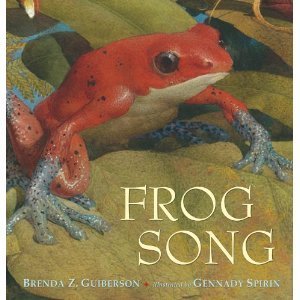
You must add it to your collection. And, if you are feeling generous, consider adding it to the collection of your neighborhood school library or donate a copy to Page Ahead. You'll feel oh-so-good when you do!
She is a living example of focusing her energy on her work. And it is not only stunning work, it is work that has the power to change the world.
Her newest book, just out, is Frog Song. This ode to the small things in nature, is lushly illustrated by the amazing Gennady Spirin.

You must add it to your collection. And, if you are feeling generous, consider adding it to the collection of your neighborhood school library or donate a copy to Page Ahead. You'll feel oh-so-good when you do!
Published on February 22, 2013 07:30
February 21, 2013
Thursday's Thought
"People who give will never be poor."
Anne Frank, The Diary of Anne Frank
Anne Frank, The Diary of Anne Frank
Published on February 21, 2013 07:00
February 20, 2013
Where I'll Be
Hattie and I are just back from our whirlwind San Francisco tour. Thank you to The Storyteller, Towne Center Books, Books Inc., Book Passage and Rakestraw Books for arranging terrific school visits and in-store events. A HUGE thank you to librarian extraordinaire, Mary Ann Scheuer, who hosted me at the most amazing book lovers' event at her home. Mmwah, Mary Ann!
Here's what's up locally:
Friday night, February 22, 6:30 pm, I'll be at 3rd Place Books in Lake Forest Park, Washington for cookies and conversation, with prizes for the best chapeaux! (I'll be in vintage dress, sewn with care by the amazing Carla Keats.)
Tuesday, February 26, 7:00 pm, I'll be at Village Books, in Bellingham, Washington, for more conversation (and possibly cookies!) and, again, prizes for the best chapeaux.
Friday, March 1, 7:00 pm, I'll be at Secret Garden Books, in Seattle, Washington for. . .well, you know the drill.
Don't live in the Puget Sound area? I'll be speaking with good buddy, Mary Nethery, at the Missouri Association of School Librarians, April 14 and 15, before jetting to San Antonio to present at the International Reading Association Conference.
I'll also be at Book Expo America -- not sure the exact dates, but that's late May.
If you can't make any events, don't fret. Email me and I'll tell you how you can get your very own Hattie Inez Brooks' Press Pass, produced on a vintage hand letterpress machine!
Enjoy these photos of the Hattie Ever After book events in San Francisco:
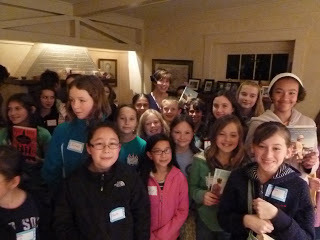 Can you see me in the back?
Can you see me in the back?
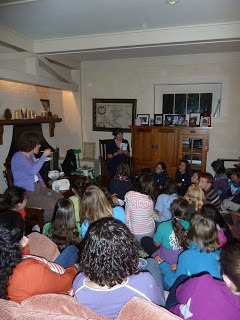
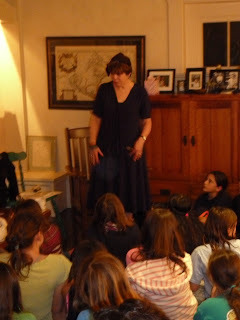 Thank you, Carla Keats, for sewing my vintage dress!
Thank you, Carla Keats, for sewing my vintage dress!

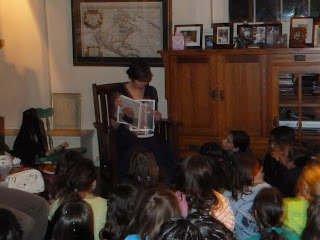
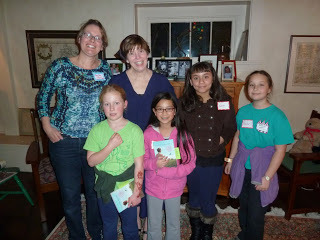
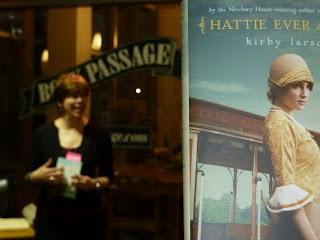 Me and Hattie -- what a team!
Me and Hattie -- what a team!
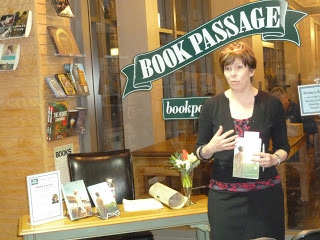
Here's what's up locally:
Friday night, February 22, 6:30 pm, I'll be at 3rd Place Books in Lake Forest Park, Washington for cookies and conversation, with prizes for the best chapeaux! (I'll be in vintage dress, sewn with care by the amazing Carla Keats.)
Tuesday, February 26, 7:00 pm, I'll be at Village Books, in Bellingham, Washington, for more conversation (and possibly cookies!) and, again, prizes for the best chapeaux.
Friday, March 1, 7:00 pm, I'll be at Secret Garden Books, in Seattle, Washington for. . .well, you know the drill.
Don't live in the Puget Sound area? I'll be speaking with good buddy, Mary Nethery, at the Missouri Association of School Librarians, April 14 and 15, before jetting to San Antonio to present at the International Reading Association Conference.
I'll also be at Book Expo America -- not sure the exact dates, but that's late May.
If you can't make any events, don't fret. Email me and I'll tell you how you can get your very own Hattie Inez Brooks' Press Pass, produced on a vintage hand letterpress machine!
Enjoy these photos of the Hattie Ever After book events in San Francisco:
 Can you see me in the back?
Can you see me in the back? 
 Thank you, Carla Keats, for sewing my vintage dress!
Thank you, Carla Keats, for sewing my vintage dress!


 Me and Hattie -- what a team!
Me and Hattie -- what a team!
Published on February 20, 2013 18:01
February 19, 2013
Teacher Tuesday
A first for this blog: we've gone international! I am so thrilled to introduce you to Erika Victor, a grade three teacher at Berlin Brandenburg International School near Berlin, Germany in a small town called Kleinmachnow. Erika also works after school with grades three through five and it's that after school work that she's going to talk about today.
First, we are going to take a peek at her past:
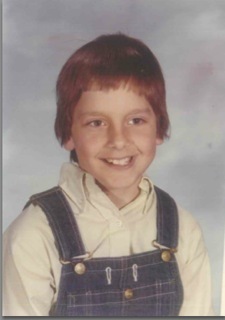
Favorite school lunch as a kid: I wish I could remember- I know I had years when I loved PB&J and years when I hated it. I LOVED school pizza- weird, eh? Best friend in grade school: I moved after sixth grade, so friends from elementary years included Carol Pallies, Veronica Barbadoro, Sally Bridges, Karen Shupert, and Susan Pasieka. Thanks to Facebook I have reconnected with Veronica and Carol recently after 30-plus years. Times you were the new kid in school: I was new in first grade, second grade, third grade, and finally in seventh grade. Teacher who inspired you to stretch: My third grade teacher Janet Efron remains forever in my mind. I loved her! Another star was Renie Herman, my fifth and sixth grade teacher. I remember that in fifth grade I started writing a book that I continued into sixth grade. I wish I still had that book, but I remember loving that I had the time and space to work on what I wanted. I try to keep that for my students today. The one thing you always wished you could do in grade school but never achieved: In third grade two boys in my class spent lots of time designing my dream house (on paper). I never got to see those houses in real life, but I really enjoyed imagining them!
Now, Erika, let's get down to talking about ways you work to connect kids and books. You told me you’d like to talk about the after school book club you’ve started. What prompted you to start a book club?
I started our book club as a time and place to do more of the things I always wish I had more time for during the day. Last year it was a lunch club. Kids brought their lunches to our room once a week. It was only open to third graders. This year some of those kids wanted to continue, but our lunch times did not coincide, so I now have it as an after school activity for grades 3-5.
What did you have to do to prepare?
I keep my eyes open for book trailers, new tools to use for creating book trailers, new author/illustrator information, new books to introduce, etc. I get lots of great leads from my Twitter PLN, especially @MrSchuReads and @colbysharp!
Describe what happens at the club, how books are selected, how you discuss them, etc.
We start by looking at a few book trailers and take it from there. Some weeks some students want to book talk a few books or read aloud a bit, but the time is “free” for everyone to do what they want. Some kids like to work together on book trailers or creating presentations about stories they have created (we love Animoto and Puppet Pals*). Other kids just want time to read. Between my great class library and the school library that is literally next door, they are spoiled for choice! At the end of the hour and a half we come together to share what we have done. We have so many great book discussions.
Why do you think book clubs are important?
I think this club has let kids see that reading is cool and being part of a reading community is fun. We have started using Biblionasiumlately and that has been a great add also. The kids like that they have time to do what they want related to reading and I like that I get some kids “trained’ in tools we can also use in the classroom, so that I have many experts. I would love to add in more Skype visits with this group. We Skyped with a class for Dot Day, but have not had an author or illustrator visit with us after school yet.
What skills do you see your students gaining from such a program?
Social skills are blossoming within this group. They come from several different classes and are happy to work with each other. I see their enthusiasm being passed on. We have a new student to our class who begged her mom to join the Junior Nerdy Book Club! Of course their reading skills are improving as they have more time to read what they love.
You mentioned ways that you’ve incorporated technology (using websites, Skype, etc) to build connections between your students and the books they’re reading. Can you talk about that?
I credit Kate Messner with my venturing into Skyping with authors. Last school year I stumbled upon her website with a list of authors who offered free Skype visits and near the end of last year we had our visit with her after reading Marty Macguire.This year we have been so lucky to meet up with a great group of authors and illustrators! I am always on the hunt for ways to connect kids with great books and this is such a beneficial way. I love that my students refer back to words of wisdom from authors we have talked to and get so excited when they know new books are coming out. We also spend time looking at author websites and follow up on connections I have made via Twitter. I love that now, when a student finds a book that s/he loves, I get asked if we can Skype with that author!
Do you have a favorite example of an author/illustator-kid exchange/interaction?
I must say honestly that every exchange that we have had has had a lasting impression. We Skyped with Ame Dyckman, author of Boy + Bot, in the first week of school and the kids were so excited to receive book swag from her as well. Kids keep passing her book on to friends and family. When we were looking at Celebridots for International Dot Day (thanks TJ Shay and Peter Reynolds) the kids got excited that Ame’s dot was the same color as her hair and asked me to send her a question about that. Of course, Ame -- being fabulous-- sent an answer right away, which I passed on to the kids. Other authors have had exchanges with kids in my class that have also really excited them. Authors and illustrators are our stars!
Can you give some examples of titles that work particularly well for book club?
We ran a mock Caldecott at school and the Jr. Nerdy Book Club had their vote on the day that the results were announced (we are nine hours ahead here, so unfortunately the actual results were announced when we were at home). Books we loved included:
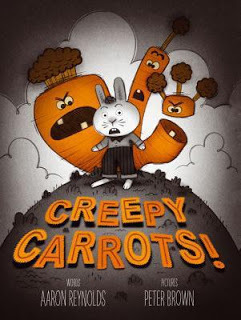
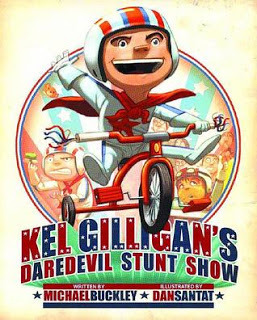
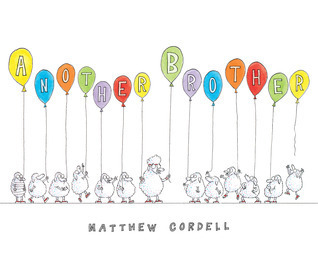
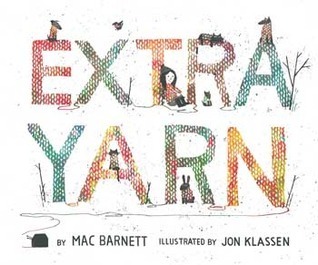
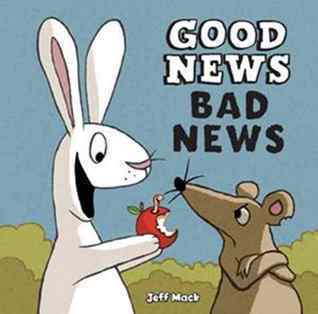
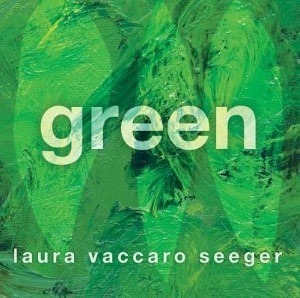
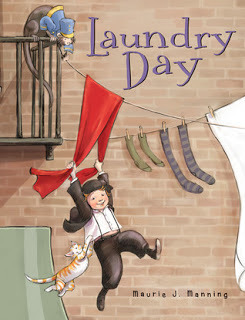
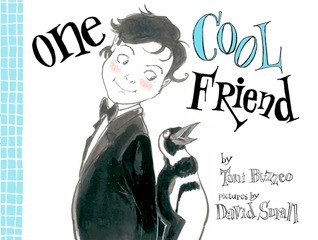
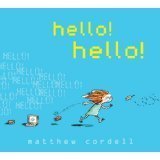
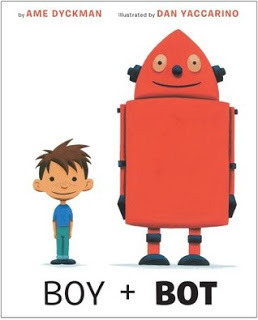
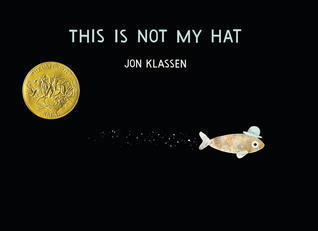
Would you encourage other teachers/librarians/schools to implement this activity? Why?
I think that a book club can be successful in so many different settings that everyone can find a way to make it work. This summer I am going to offer a week long Jr. Nerdy Book Club camp- we'll see how that goes. I think sharing book love is great wherever it takes place.
What has most surprised you about after school book clubs?
I thought we would spend more time reading aloud. I actually started a longer term read aloud, but it soon became obvious that the kids had other ideas… and that was fine with me! I am also surprised that they love it so much.
What do you wish I’d asked you that I neglected to ask?You should have asked me why I am at school during my break answering these questions (and the answer is NOT only that I am a great procrastinator!). My wifi at home is acting up so I came in to download Hattie Ever After on her book birthday to my Kindle, so that I can read it TODAY!
Aw, gee - Hattie and I both thank you for that, Erika. I certainly hope your great ideas inspire others to launch after school book clubs! I love that there seem to be so many ways to structure the clubs. Your enthusiasm has inspired me to (hint, hint) ask if I could email with your class, too! And I'm going to keep following you on twitter: @Victortweets
*Puppet Pals is a free app, available from iTunes
Published on February 19, 2013 07:00
February 15, 2013
Friend Friday
I think I can count myself as a friend, can't I? Well, I am as happy as if I'd pitched a no-hitter to announce that the sequel to Hattie Big Sky is out, as of February 12.
Yahoo!

Yahoo!

Published on February 15, 2013 07:00
February 14, 2013
Thursday's Thought
"Love looks through a telescope; envy, through a microscope."Josh Billings
Published on February 14, 2013 07:00
February 12, 2013
Teacher Tuesday
Today's post is from the very thoughtful, Carmen Gordillo, a seventh and eighth teacher in the northeast part of the country. I'm excited to share Carmen's thoughts because I haven't interviewed as many middle school teachers and librarians as I have elementary. So let's dive in!
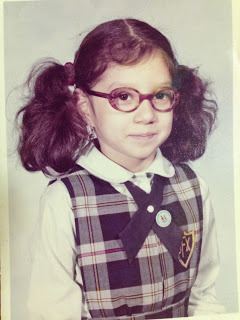 Here's Carmen thinking about which book to read first
Here's Carmen thinking about which book to read firstFavorite school lunch as a kid: If you asked my mother this question she would tell you I did not like anything. I was a skinny kid who did not have much of an appetite. I did not like the Spanish food my mom cooked. I love and appreciate it now!Best friend in grade school: Maria Elena was my best friend in elementary school. When I think of her I remember: Chinese jump rope…our love of Rocky movies…getting over my fear of dogs (She had a pit bull and Doberman!). She was a loyal friend and our families were always close. She now lives in FL and we recently reconnected. Times you were the new kid in school: I was new in 1st grade when my family moved to NJ from N.Y.C. and in 4th grade when I transferred to a parochial school from the local public school.Teacher that inspired you to stretch: I remember my fourth grade teacher introduced me to chapter books by Beverly Cleary. I was overwhelmed at first by the amount of pages, but when I started reading them I fell in love and did not notice the length because I got so into the books. The one thing you always wished you would have done in grade school but never achieved: I wish I had kept my writing projects from elementary school. I would love to read what I wrote back then! I remember one of my teachers read a story I wrote about my beagle, Rocky, aloud to the class. I recall the class laughing at certain parts. I did keep my old diary collection. I started writing in a diary at the age of nine.
Thanks for sharing about yourself as a young student, Carmen. Now let's shift gears and talk about your middle school teaching experiences. You told me you’d like to talk about helping middle school students choose books for independent reading. What prompted your thinking about that?
Having students choose their own books to read independently is an important piece that is often overlooked in curriculums. I find that many schools focus on data, testing, and new standards. However, if they are not having students reading independently they are missing the mark. Students should be given the opportunity to choose books based on their interest. They need time to read these books. Reading research suggests for kids to read for at least two hours throughout the school day. It’s like if you want someone to be a good swimmer and pass a swimming test you need to have this person in the pool practicing how to swim. In reality you want the person to be a good swimmer for life, not just pass a test. Let’s get our students in the pool!
What are the biggest challenges you see for students trying to make their own reading selections?
Some of my students have a difficult time selecting books because they do not have the experience or knowledge of different books or authors. I make sure to have “book talks” to introduce various books and genres to my students. In addition, when we are in the library I make it a point to have conversations about books one-on-one with my students as they are browsing through the shelves.
I have an image of my own kids when they were in middle school – great readers, but not that interested in Mom’s suggestions. How do you overcome such resistance?
The best advice I could give parents is to focus on your child’s interest and choose reading material together based on this first. Parents and kids should visit bookstores and libraries together. It is also important to set aside reading time at home too.
Why does it matter that kids make good independent reading selections?
It matters for kids to make good independent reading choices because then they will be engaged in the book and actually read it. In her new book, Book Love, Penny Kittle discusses how many kids practice “fake reading.” This is when students just look at the pages and flip through the book without really reading it. This is an indication that they have not found the right book. Middle school students need to have reading mentors. It is important for teachers to read current children’s literature so they could make recommendations to their students and guide them to pick the right books.
What skills do you see your students gaining from making solid choices? From independent reading?
When students are reading independently on an ongoing basis they are able to apply the strategies taught in class. There is also a huge difference in the amount of words a reader acquires by reading daily in comparison to a nonreader. It’s plain and simple: people get better at reading by reading!
Are there ways you’ve incorporated technology (using websites, Skype, etc) to build connections between your students and the books they’re reading?
Yes! Incorporating technology is one of my favorite parts of teaching in the 21stcentury. It brings a new energy into the classroom and kids look forward to it. One of my favorite activities is browsing through author’s websites and twitter accounts on the SMART board based on my students’ questions. Additionally, my students create their own blogs where they include posts about the books they are reading and topics they have researched. There is a different level of accountability because they know they are writing for a bigger audience. They can also respond to each other and this helps build a community in the classroom. Another technology tool I use is Edmodo, which is like an educational Facebook. In addition to blogging on this site I can attach assignments, articles, and create polls (there are many other features too). The kids enjoy going on this site because they are familiar with the format and it is another great way to share their learning and thoughts about books.
Can you give some examples of titles that work particularly well for your middle schoolers?
I am reading Wonder by R.J. Palacio to my seventh graders. It is about a lovable boy, August, who has facial deformities and starts middle school for the first time. My students love this book! They beg me to read it every day. Some of my students asked our library media specialist to order it so they could read it on their own.
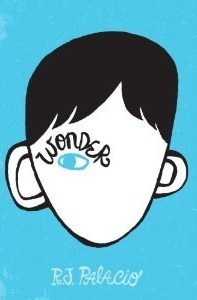
Some of my eighth grade boys have expressed that The Outsiders by S. E. Hinton is the first book they have read on their own. It is a classic, but goody.
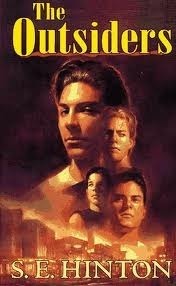
The themes of family, friendship, and class warfare resonate with them. I find it is rewarding when these same students request to read other books by S.E. Hinton. This is important because then they could start building a reading life.
Thank you, Carmen, for sharing your thoughts today. I love that line about getting kids into the pool! I'm guessing there are a lot of other teachers out there eager to find ways to encourage students to read independently and you've certainly provided great food for thought.
Published on February 12, 2013 07:00



